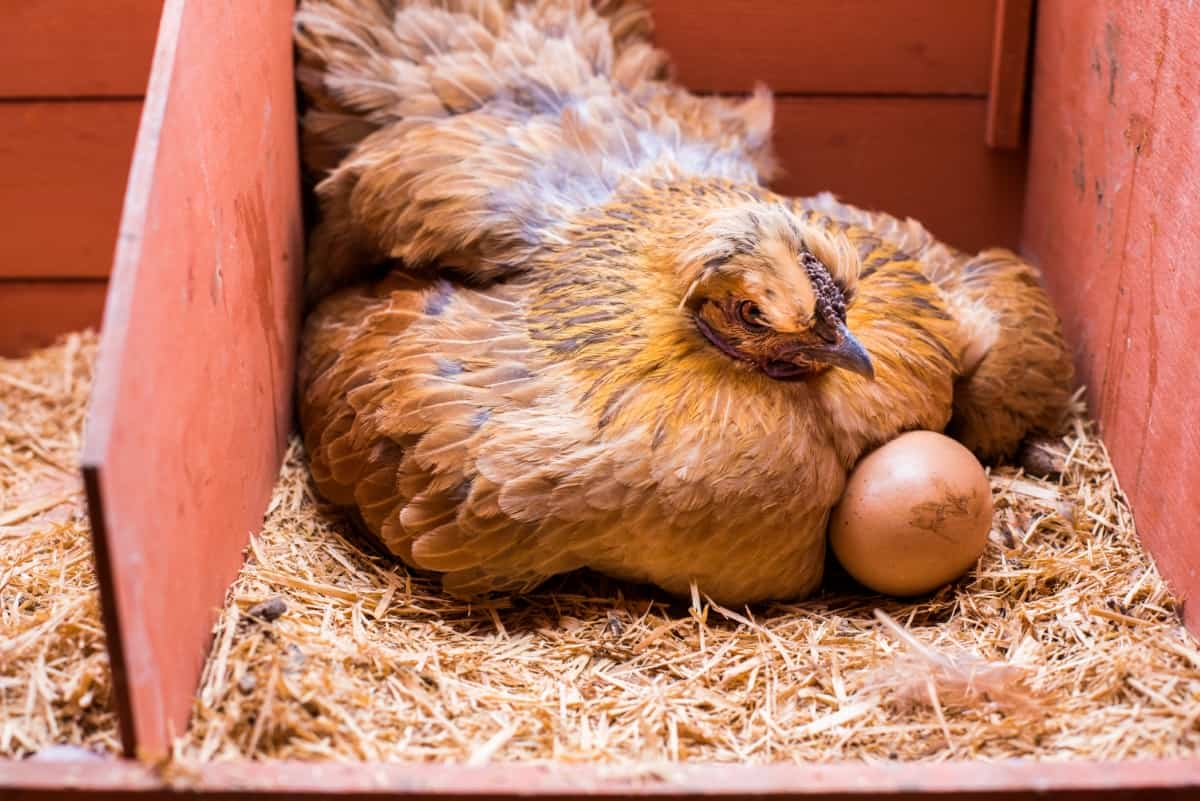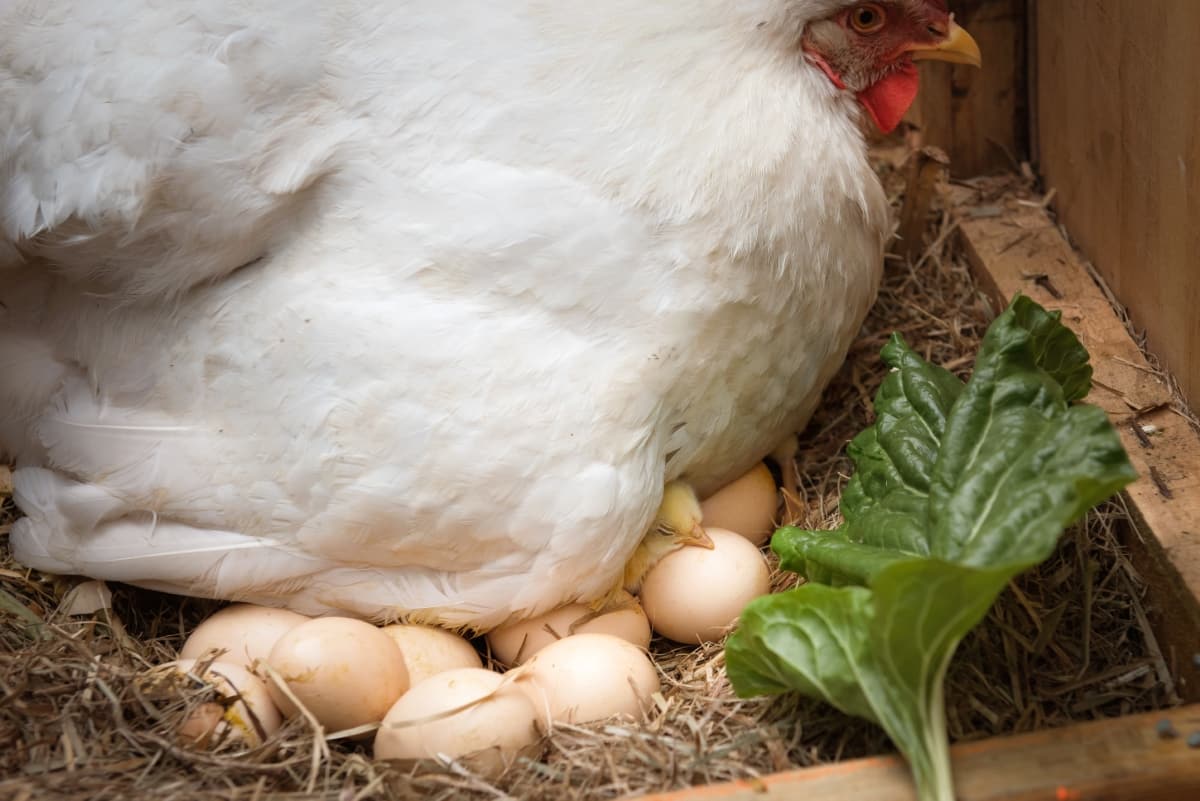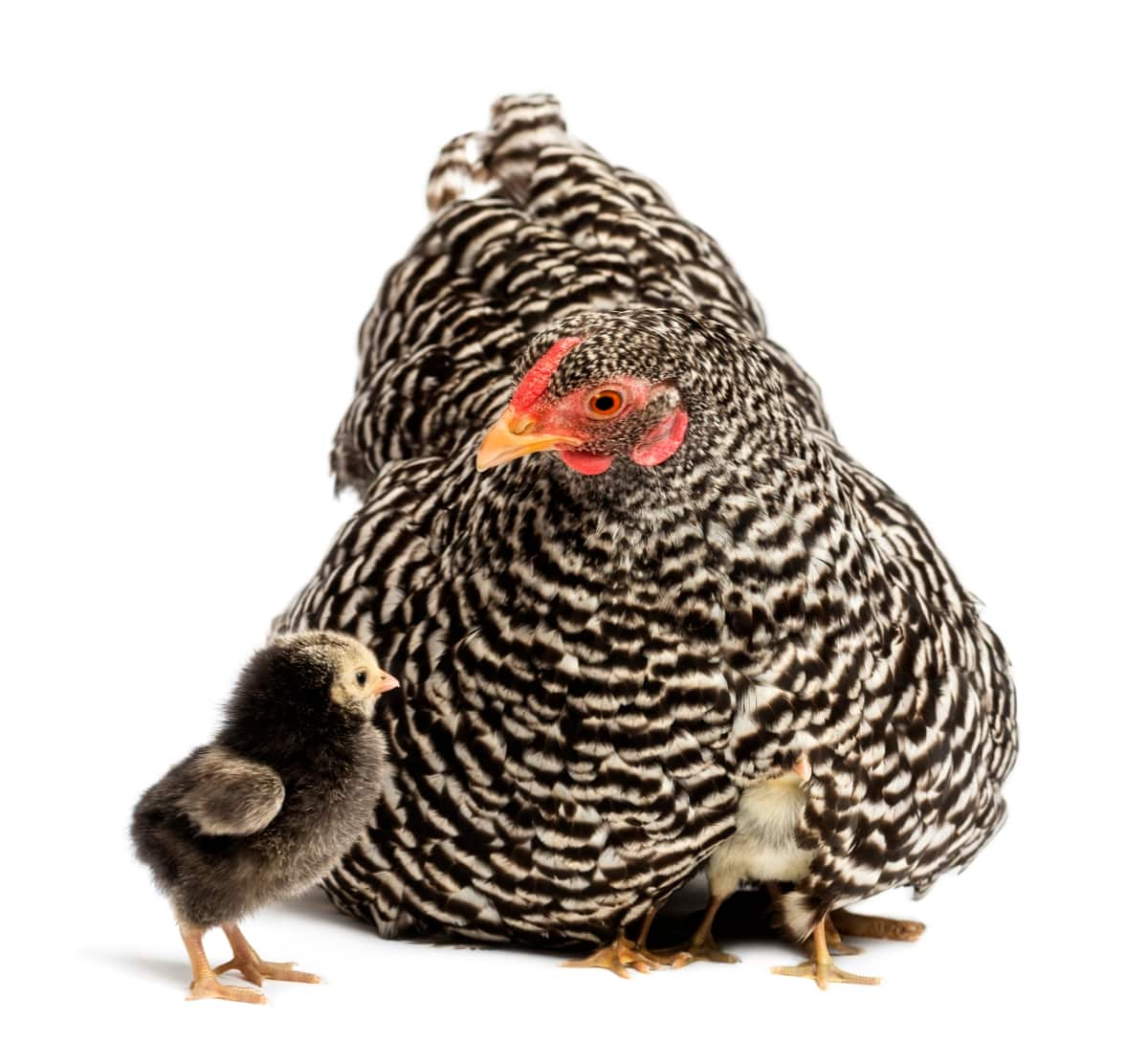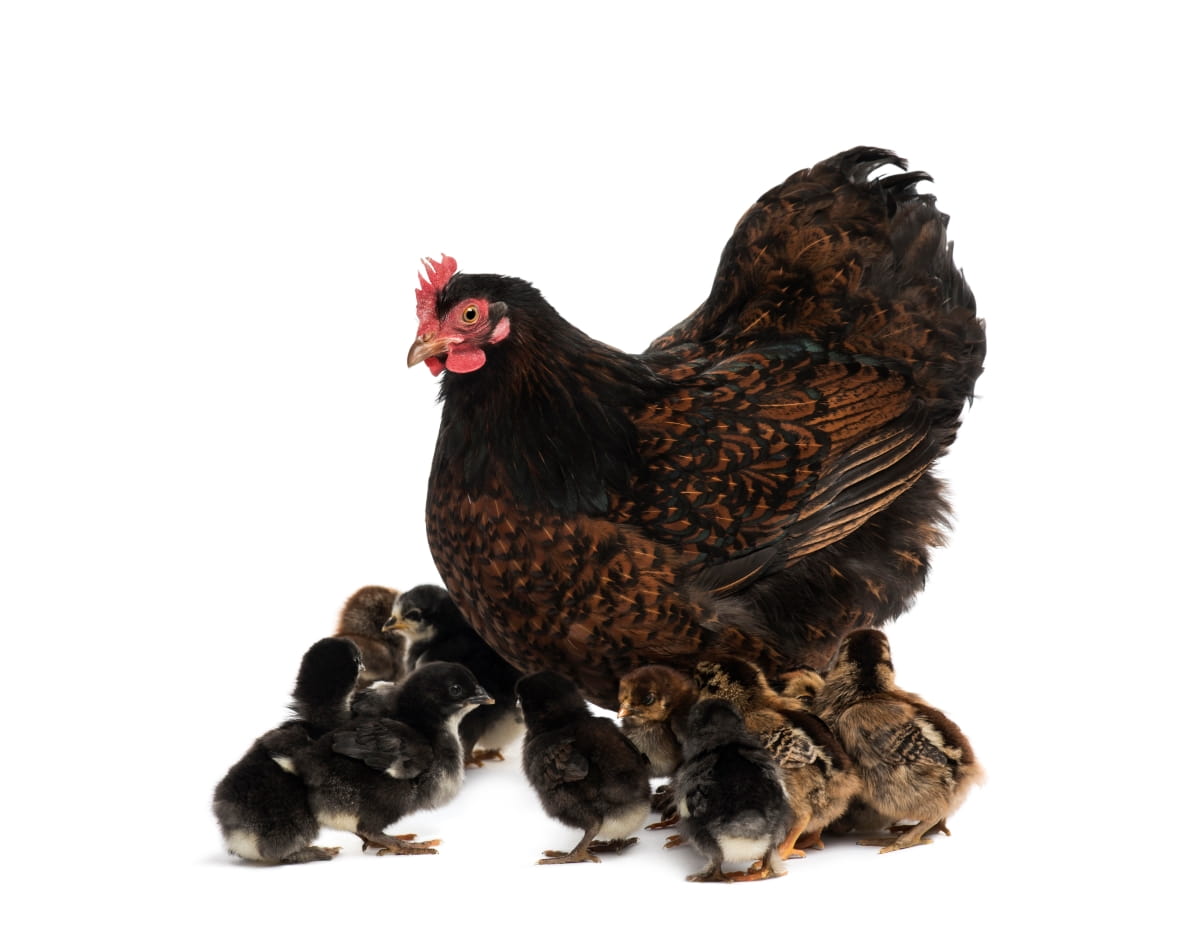Natural incubation is a crucial aspect of raising chickens naturally and sustainably. It allows for the natural development of baby chickens under the care of a broody hen, providing them with essential warmth, protection, and guidance during their early days. This process mimics how things would occur in the wild, with minimal human intervention. By utilizing a broody hen for incubation, you tap into centuries-old instincts that are hardwired in these birds.

How to Utilize a Broody Hen for Hatching
Overview of Natural Incubation
Understanding the Role of a Broody Hen
Natural incubation, also known as brooding, is the most straightforward method of hatching a small number of eggs. The natural incubation of eggs is when the broody mother bird incubates by sitting on the eggs herself without external assistance. It’s nature’s way of bringing new life into the world, allowing for a hands-off approach to hatching and rearing baby chickens.
Benefits of Using a Broody Hen for Incubation
The main advantage of broody hen for incubation is the instinct and warmth provided by the hen, creating an ideal environment for egg development. This innate behavior ensures consistent heat regulation, which is crucial for successful incubation. Furthermore, broody hens require minimal intervention compared to artificial incubators, reducing the need for external monitoring or adjustments. This hands-off approach allows nature to take its course, resulting in stronger chickens with enhanced survival instincts.
Identifying a Broody Hen
Signs of Broodiness in Hens
Identifying a broody hen is not as challenging as it may seem. Some common signs include staying in the nesting box for extended periods, puffing up feathers when approached, and being protective of the eggs. A broody hen will often spend most of her time sitting on a clutch of eggs, rarely leaving the nest, and may become aggressive or defensive if anyone approaches her nest.
Selecting the Right Hen for Incubation
Choosing the right hen for incubation involves selecting one that exhibits consistent broody behavior and has a gentle temperament. Look for hens that are dedicated to sitting on their eggs without getting easily agitated or distracted. It’s essential to observe your hens closely to determine which one is most suitable for natural incubation. Not all hens will demonstrate broodiness, so finding the right candidate requires patience and observation.
Preparing for Incubation
Setting Up a Nesting Box
Choose a quiet and private location away from high-traffic areas to ensure the hen feels secure while sitting on eggs. The nesting box should be cozy and lined with clean bedding to provide warmth and comfort for both the hen and the eggs. Ensure there is adequate ventilation in the nesting area to prevent overheating during incubation. Additionally, place the nesting box in a draft-free spot to maintain stable temperature conditions for successful egg development.
Ensuring a Comfortable Environment for the Broody Hen
Creating a comfortable environment for your broody hen is crucial for the success of natural incubation. Start by providing a quiet and secluded nesting area. Make sure the nest is well-bedded with clean straw or hay to keep the eggs warm and protected. Regularly check on the bedding material to ensure it remains clean and dry throughout the incubation period.
In case you missed it: How to Fix a Muddy Run Chicken Coop: Solutions for a Mud-Free Chicken Run and Coop

The Incubation Process
How to Set Eggs Under a Broody Hen
Setting eggs under a broody hen is a fascinating process that mimics nature’s way of hatching baby chickens. To begin, carefully select fertile eggs for placement in the nest where your broody hen has been diligently sitting. Create a calm environment as you move swiftly but gently to avoid causing any unnecessary stress to both the hen and her precious cargo. Slide each egg beneath her warm body, ensuring they are positioned evenly for consistent heat distribution during incubation.
Monitoring the Hen and Eggs During Incubation
During the incubation period, it’s essential to monitor both the broody hen and the eggs regularly. Check on the hen daily to ensure hen is sitting properly on the eggs and not abandoning them. Monitor the temperature in the nesting area to guarantee it stays within the optimal range for egg development.
Managing Hen and Egg Health
Diet and Nutrition for the Broody Hen
A balanced diet is essential for the broody hen’s overall health during this critical period. Providing access to fresh water is also important to keeping eggs hydrated. Offering high-quality poultry feed specifically formulated for broody hens can help provide the necessary nutrients for optimal egg development.
Caring for the Eggs to Ensure Healthy Development
During this incubation period, make sure to provide a stress-free environment for the broody hen. Regularly check on the nesting box to monitor temperature and humidity levels. Maintaining optimal conditions is vital for successful egg development.
The Hatching Process
What to Expect When Baby Chickens Start Hatching
As the incubation period nears its end, you may start to notice some exciting signs of hatching. The eggs will begin to chirp and wiggle as the baby chickens inside start to break free from their shells. It’s a truly magical experience watching new life emerge before your eyes. The hatching process can be slow and steady or quick and sudden, so it’s essential to be patient and let nature take its course. The baby chickens need time to fully emerge on their terms, which is crucial for their strength and development.
Assisting with Difficult Hatches: When and How
When you notice a baby chicken struggling to hatch from its egg, it’s crucial to intervene carefully. One common method is gently helping the baby chicken by peeling away bits of the shell to create an opening for it to emerge. Providing a warm and moist environment can also aid in softening the shell, making it easier for the baby chicken to break free.
Caring for the Newly Hatched Baby Chickens
The First Days: Warmth, Feeding, and Safety
After patiently waiting for three weeks, the moment has finally arrived – your baby chickens have hatched. The first few days are crucial in ensuring their health and well-being. Feeding is another critical aspect of caring for newly hatched chickens. Provide fresh water at all times and ensure it is easily accessible to the little ones. Safety is paramount during these initial days. Keep an eye on any potential hazards in the brooding area that could harm or stress the vulnerable chickens.
Integrating Baby Chickens with the Flock
Introducing newly hatched baby chickens to the existing flock can be a delicate process. It’s essential to ensure a smooth integration by allowing the baby chickens and older chickens to get acquainted gradually. Start by placing the broody hen and her baby chickens in an area within the coop where they can see and hear the other birds without direct contact.
In case you missed it: How to Raise Baby Chicks: The First 8 Weeks Of Raising Baby Chickens

Supervise their interactions closely, watching for any signs of aggression from the older chickens toward the young ones. Slowly introducing treats like mealworms can also foster positive associations among all members of the flock.
Advantages of Broody-Hen Raised Baby Chickens
Social and Behavioral Benefits
Raising baby chickens with a broody hen offers various advantages beyond just hatching them naturally. One significant benefit is the social and behavioral development that occurs under the care of a mother hen. Baby chickens raised by a broody hen also tend to exhibit less aggressive behavior compared to those raised in an incubator or without maternal care.
Health and Immunity Boosts
When utilizing a broody hen for hatching and rearing baby chickens, one of the significant benefits is the health and immunity boosts that chickens receive. By being naturally incubated and raised by a broody hen, baby chickens are exposed to beneficial bacteria present in their environment. Furthermore, the natural care provided by a broody hen ensures that chickens receive optimal warmth, nutrition, and protection during their crucial development stages.
In case you missed it: Ultimate Guide to Swarnadhara Chicken: Profile, Farming, Egg-Laying, and Care

Conclusion
The importance of natural incubation lies in its ability to mimic the conditions that chickens would experience in nature. This process helps foster strong immune systems in baby chickens by exposing them to beneficial bacteria from their environment. Utilizing a broody hen for hatching not only simplifies the process but also contributes to raising happy, healthy, and well-adjusted chickens in your flock.
- Feed Your Flock for Less: Top 10 Tips to Save on Chicken Feed
- Ultimate Guide to Ossabaw Island Hog: Breeding, Raising, Diet, and Care
- Hatching Answers: The Top 10 Reasons Your Chickens Aren’t Laying Eggs
- Eggs and Economics: Breaking Down the Cost of Raising Backyard Chickens
- Defend Your Greens: Proven Methods to Keep Iguanas Out of Your Garden
- Ultimate Guide to Cinnamon Queen Chicken: A Comprehensive Guide for Beginners
- Ultimate Guide to California Tan Chicken: Breeding, Raising, Diet, Egg-Production and Care
- Ultimate Guide to Marsh Daisy Chicken: Breeding, Raising, Diet, and Care
- 10 Types of Chicken Farming Businesses You Can Start for Profits